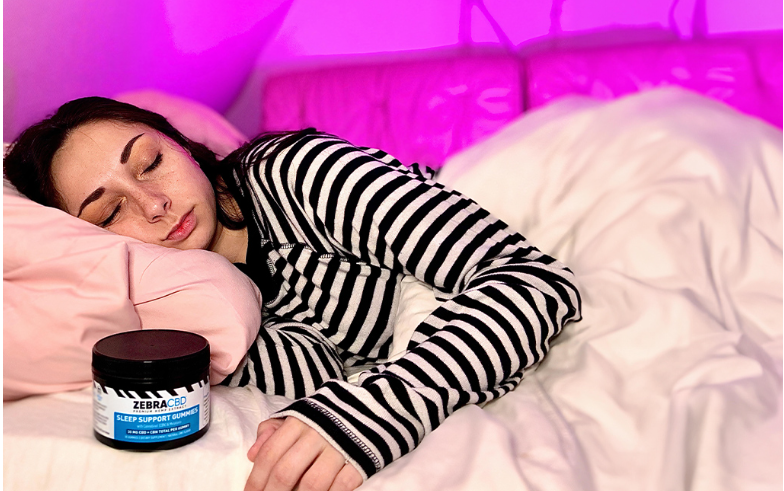
Curling up in bed for a good night’s sleep is more than just a reprieve from your day-to-day. It’s also an essential time when the body restores and rejuvenates itself. As you sink into the comfort of your sheets, your body begins its nightly ritual of repair and renewal. Cells regenerate, muscles relax and the mind unwinds from the day's stresses. It's also during this restorative process that growth hormones are released, tissues are repaired, the immune system strengthens itself and more.
As such, failing to sleep restfully can impact your brain function and memory, influencing how you feel, think, react, learn and interact with others.
To improve your sleep quality and support your overall wellness, we’ve compiled expert sleeping tips to help you enhance your nightly routine.
#1 Create a Comfortable Sleep Environment
Trying to fall asleep in a well-lit, noisy environment is rarely ideal. Bright lights signal to your brain that it's time to be awake, while noise can disrupt your ability to relax and unwind.
Instead, take a few moments before bed to darken your bedroom. Maybe this involves closing your bedroom door or investing in blackout curtains to block intrusive bright light from seeping into your windows. To combat noise, use earplugs or a white noise machine to mask sounds that may disrupt your sleep, such as late-night socializers or the garbage truck making its morning rounds.
You can also take steps to make your sleeping experience more comfortable. For instance, make your bed with soft, breathable and plush bedding that cocoons you in comfort and regulates your body temperature. According to experts, the ideal sleeping temperature ranges from 60 to 67° Fahrenheit, so you might want to make an adjustment to your thermostat, too.
#2 Limit Your Screen Time
We’ve all been there — lying in bed and winding down with a scroll down social media lane. While taking some time to yourself to destress from the day can be beneficial, blue light emitted from phone, computer and television screens can negatively impact your sleep patterns.
Specifically, this form of artificial lighting can signal to our brains that the sun is out. In effect, the brain produces less melatonin, a hormone that increases when it’s dark outside and helps regulate the circadian rhythm. Unfortunately, consistent sleep problems may lead to low moods, unhealthy blood sugar levels, heart problems and weight gain.
To reduce the amount of blue light you experience at night, you can:
- Avoid using blue light-emitting devices at least one hour before your bedtime
- Wear blue light-blocking glasses
- Opt for warm lighting and avoid fluorescent lights at night
That said, blue light is entirely okay during the day. In fact, it’s been found to increase your focus, mood and attention span.
#3 Avoid Large Meals Before Bed
If you love a midnight snack, you might not like this next sleep tip. Eating a meal that’s dense in fat, sugar, spices or caffeine can disrupt your sleep quality in several ways.
First, it can impact your body’s sleep-wake cycle. At night, the body becomes less sensitive to insulin, a hormone that regulates blood sugar levels. This decreased sensitivity to insulin is a natural part of the body's circadian rhythm, helping to conserve energy during sleep.
That said, when you eat late at night, the calories you consume are more likely to be stored as fat, as you’re less likely to burn them while you sleep. Further, eating too close to bedtime can disrupt digestion and may keep you awake, particularly if you’re prone to gas and/or stomach discomfort.
Second, eating high-calorie meals that are rich in fats and carbohydrates before bed can extend the amount of time it takes to fall asleep or increase the likelihood of waking up during the night.
To avoid a food-induced all-nighter, eat your final meal at least four hours before you plan to go to bed. If you become hungry during the night, you can opt for sleep-supporting foods, such as:
- Tart cherry juice
- Kiwi
- Nuts, such as walnuts, almonds, pistachios and cashews
- Milk
#4 Move Your Body During the Day
Exercise is critical to our overall health and wellness. Prioritizing physical activity throughout the day can help to:
- Enhance brain health
- Manage weight
- Strengthen bones and muscles
- Improve mood and overall mental health
It may also support quality sleep. Research shows that moderate aerobic exercise may increase the amount of deep sleep you achieve at night. During this phase, the brain enters a state of restorative rest, facilitating memory consolidation, hormone regulation and overall physical recovery. Exercise may also help to stabilize your mind and thoughts, which can help you fall asleep easier.
That said, timing matters.
Exercising right before bed may negatively interfere with your quality of sleep. Why is this? During aerobic exercise, such as running, cycling, walking or swimming, the body releases endorphins, hormones that can increase your brain activity and make it more difficult to fall asleep. Additionally, moderate exercise can raise your body temperature, which can signal to the body that it’s time to be awake.
To combat this, limit exercise to one to two hours before bed. This gives your body enough time to flush out endorphins and cool down, which can help enhance sleepiness.
To support a quality night of sleep, all you need is 30 minutes of moderate exercise per day. This can include:
- Trying out a new salsa dance class
- Kayaking along a river
- Mountain biking on a scenic trail
- Playing frisbee with friends in the park
Get Quality Sleep With Zebra CBD
To facilitate a more restful night, fill your nightly routine with cozy lighting and healthy eating habits, and prioritize movement throughout the day.
To supplement a healthy nighttime routine, you can also incorporate CBD supplements, like our CBD CBN sleep gummies, that help relax the body and mind. Discover how CBD oil benefits a healthy lifestyle, as well the best CBD for sleep to choose the best product for you. Specifically, at Zebra CBD, we formulate each of our CBD products, from CBD topicals to CBD gummies for sale, with premium hemp extract to deliver the highest quality product.
But how exactly is CBD the sleep time savior?
CBD interacts with the body’s endocannabinoid system to promote homeostasis, which can help alleviate stress, allow for a more relaxed state of mind and help regulate the sleep-wake cycle to increase feelings of sleepiness.
Browse our CBD online today to experience the difference for yourself.
Sources:
- University of Michigan. Sleep 101. https://sph.umich.edu/pursuit/2020posts/why-sleep-is-so-important-to-your-health.html
- Harvard Medical School. Why Sleep Matters. https://sleep.hms.harvard.edu/education-training/public-education/sleep-and-health-education-program/sleep-health-education-41
- CDC. Tips for Better Sleep. https://www.cdc.gov/sleep/about_sleep/sleep_hygiene.html
- Cleveland Clinic. The Best Temperature for Sleep. https://health.clevelandclinic.org/what-is-the-ideal-sleeping-temperature-for-my-bedroom
- Harvard Health Publishing. Blue light has a dark side. https://www.health.harvard.edu/staying-healthy/blue-light-has-a-dark-side
- Sleep Foundation. Is it bad to eat before bed? https://www.sleepfoundation.org/nutrition/is-it-bad-to-eat-before-bed
- CDC. Benefits of Physical Activity. https://www.cdc.gov/physicalactivity/basics/pa-health/index.htm
- Johns Hopkins Medicine. Exercising for Better Sleep. https://www.hopkinsmedicine.org/health/wellness-and-prevention/exercising-for-better-sleep









